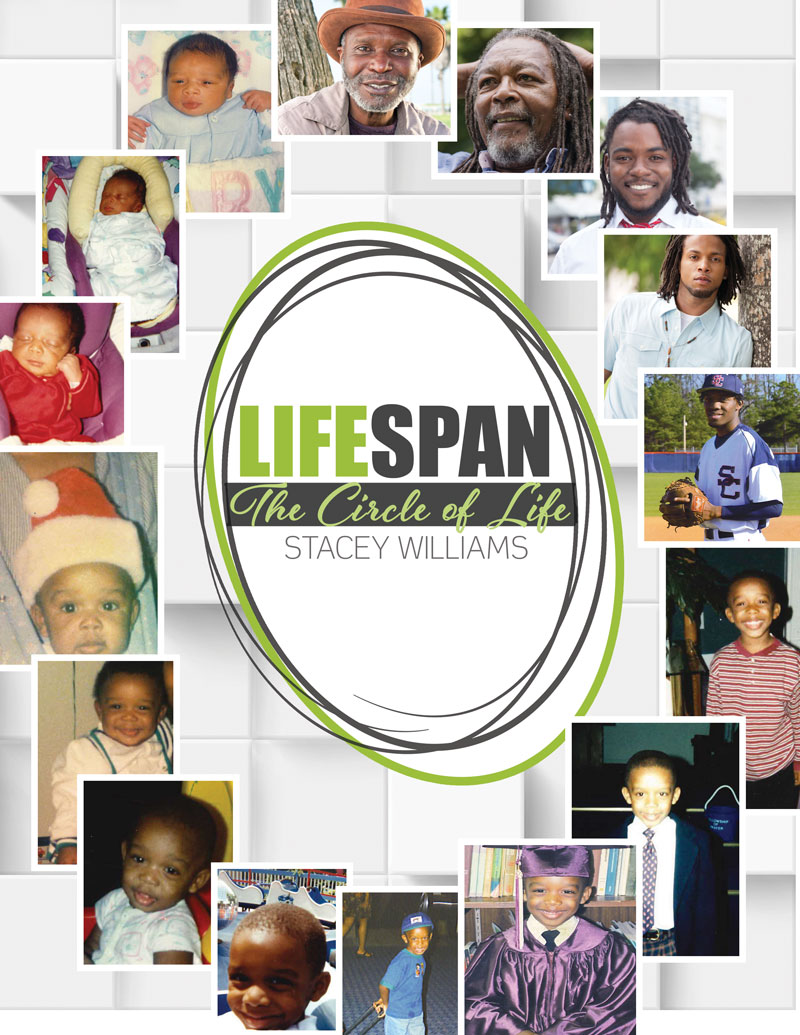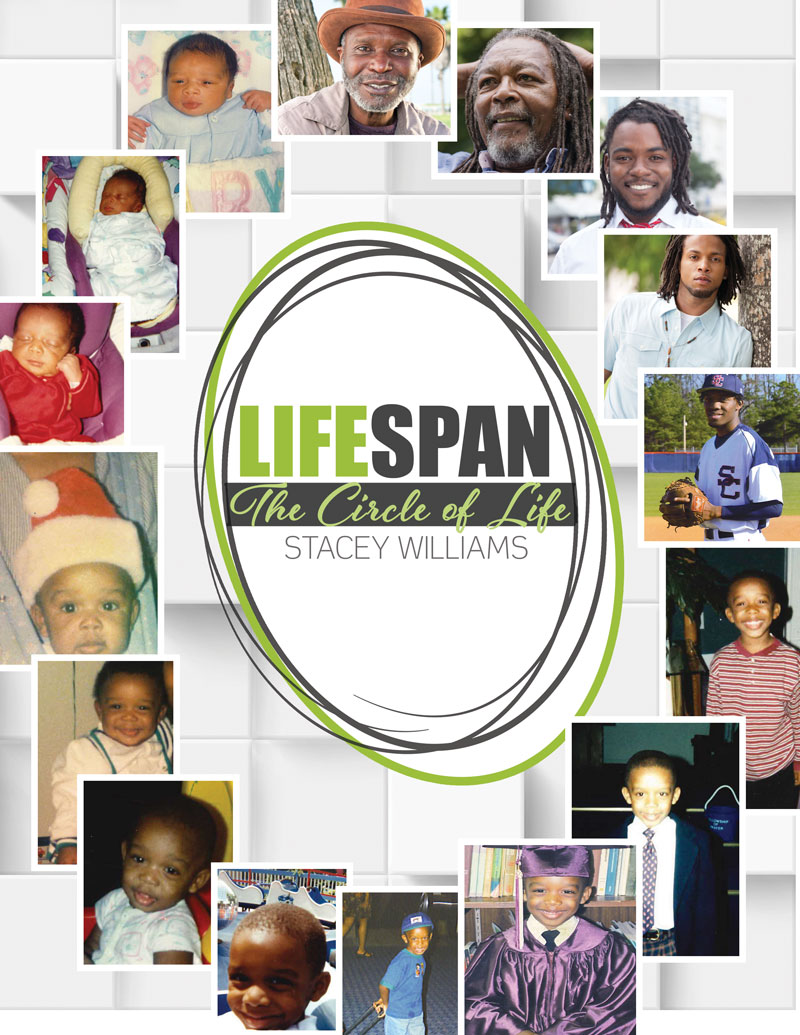Lifespan: The Circle of Life
Author(s): Stacey Williams
Edition: 1
Copyright: 2019
This book is devoted to the field of lifespan developmental psychology, which is the scientific study of human growth and adaptation across the life span.
Chapter 1: Introduction
Context and Cohort
Capturing Context and Cohort:
Life Expectancy
Principles of Development
Developmental Psychology
Developmental Psychology as a Science
Developmental Psychology as a Practice
Is Western Psychology WEIRD?
Theory
Nature and Nurture
Cycles of Life
Classical Conditioning
Operant Conditioning
Social Learning
Biological Theory
Plasticity Principle
Evolutionary Theory
Ecological Theory
Research Paradigms
Erikson’s Stage Theory
The Power of Facts and Theories
Summary
Key Terms
References
Chapter 2: Prenatal Development
Biological Bases of Prenatal Development
A Brief History
Teratogens
Prenatal Care and Diagnostic Tests
The Birth Event
Low Birth Weight
Premature Delivery and Care
Infertility
Infant Mortality
Key Terms
References
Chapter 3: Physical and Cognitive Development in Infancy
Infancy
Neurological Development
Synaptogenesis and Myelination
Physical and Motor Development
Language
Cognitive Development: Piaget
Habituation and Object Permanence
Memory
Concurrent Developmental Processes
Key Terms
References
Chapter 4: Socioemotional Development in Infancy
Temperament
Ethological Evidence of Bonding and Attachment
Attachment
Strange Situation Paradigm
Attachment Development
Ecological Considerations of Daycare
Erikson
Key Terms
References
Chapter 5: Physical and Socioemotional Development in Childhood
Defining Childhood
Neurological Development
Motor Development
Obesity
Health Socialization
Erikson
Self-Esteem
Emotional Regulation
Prosocial Behavior
Aggression
Bullying and Popularity
Play
Family
Corporal Punishment
Siblings
Identity
Gender Identity
Racial Identity
Key Terms
References
Chapter 6: Cognitive Development in Childhood
Piaget
Vygotsky
Theory of Mind
Reading
Key Terms
References
Chapter 7: Physical, Cognitive and Socieoemotional Development of Adolescence
Neurological Development
Puberty
Factors Associated with Pubertal Onset
Disordered Eating and Eating Disorders
Concrete and Symbolic Thought
Piaget
Moral Development
Egocentrism
Intelligence
Peer Groups
Organized Activities
Intimacy, Identity, and Friendships
Dating
Sexuality
Reconciling Cognitive and Socioemotional Development in Adolescence
Key Terms
References
Chapter 8: Emerging Adulthood
Defining Adulthood
Social Clock
Intimacy and Love
Marriage and Cohabitation
Divorce
Pregnancy and Parenting
Co-parenting and the Spillover Hypothesis
Career Exploration
Income and Happiness
Substance Use in Emerging Adulthood
An Ecological Perspective on Substance Use
Multidimensional Model of Relieving Psychological Suffering
Diversity of Approaches for Relieving Psychological Suffering (Treatment)
Multi-dimensional Models of Describing Psychological Suffering
The Pivot of the Adolescent Brainstorm
Key Terms
References
Chapter 9: Middle Adulthood
Personality
Generativity and Socio-emotional Selectivity Theory
Empty Nest
Midlife Transitions
Key Terms
References
Chapter 10: Later Life and Death and Dying
Later Life and Life Expectancy
Physical Aging
Neurological Aging
Memory
Dementia
Assisted Living
Exercise in Later Life: Physical Benefits
Exercise in Later Life: Cognitive and Psychosocial Benefits
Definition of Death
Death Perspectives
Grief and Bereavement
Mourning
Suicide
Euthanasia
Death with Dignity
Palliative Care: Hospice
Widowhood
An Ecological Perspective on Grief
Key Terms
References
GLOSSARY
Stacey Williams is a Lecturer of Psychology at Kennesaw State University. She received her B.A, in Psychology from the University of South Carolina, and a M.A. in Educational Psychology after moving to Georgia. She teaches Introductory Psychology , Social Psychology, Lifespan Developmental Psychology and Diversity.
This book is devoted to the field of lifespan developmental psychology, which is the scientific study of human growth and adaptation across the life span.
Chapter 1: Introduction
Context and Cohort
Capturing Context and Cohort:
Life Expectancy
Principles of Development
Developmental Psychology
Developmental Psychology as a Science
Developmental Psychology as a Practice
Is Western Psychology WEIRD?
Theory
Nature and Nurture
Cycles of Life
Classical Conditioning
Operant Conditioning
Social Learning
Biological Theory
Plasticity Principle
Evolutionary Theory
Ecological Theory
Research Paradigms
Erikson’s Stage Theory
The Power of Facts and Theories
Summary
Key Terms
References
Chapter 2: Prenatal Development
Biological Bases of Prenatal Development
A Brief History
Teratogens
Prenatal Care and Diagnostic Tests
The Birth Event
Low Birth Weight
Premature Delivery and Care
Infertility
Infant Mortality
Key Terms
References
Chapter 3: Physical and Cognitive Development in Infancy
Infancy
Neurological Development
Synaptogenesis and Myelination
Physical and Motor Development
Language
Cognitive Development: Piaget
Habituation and Object Permanence
Memory
Concurrent Developmental Processes
Key Terms
References
Chapter 4: Socioemotional Development in Infancy
Temperament
Ethological Evidence of Bonding and Attachment
Attachment
Strange Situation Paradigm
Attachment Development
Ecological Considerations of Daycare
Erikson
Key Terms
References
Chapter 5: Physical and Socioemotional Development in Childhood
Defining Childhood
Neurological Development
Motor Development
Obesity
Health Socialization
Erikson
Self-Esteem
Emotional Regulation
Prosocial Behavior
Aggression
Bullying and Popularity
Play
Family
Corporal Punishment
Siblings
Identity
Gender Identity
Racial Identity
Key Terms
References
Chapter 6: Cognitive Development in Childhood
Piaget
Vygotsky
Theory of Mind
Reading
Key Terms
References
Chapter 7: Physical, Cognitive and Socieoemotional Development of Adolescence
Neurological Development
Puberty
Factors Associated with Pubertal Onset
Disordered Eating and Eating Disorders
Concrete and Symbolic Thought
Piaget
Moral Development
Egocentrism
Intelligence
Peer Groups
Organized Activities
Intimacy, Identity, and Friendships
Dating
Sexuality
Reconciling Cognitive and Socioemotional Development in Adolescence
Key Terms
References
Chapter 8: Emerging Adulthood
Defining Adulthood
Social Clock
Intimacy and Love
Marriage and Cohabitation
Divorce
Pregnancy and Parenting
Co-parenting and the Spillover Hypothesis
Career Exploration
Income and Happiness
Substance Use in Emerging Adulthood
An Ecological Perspective on Substance Use
Multidimensional Model of Relieving Psychological Suffering
Diversity of Approaches for Relieving Psychological Suffering (Treatment)
Multi-dimensional Models of Describing Psychological Suffering
The Pivot of the Adolescent Brainstorm
Key Terms
References
Chapter 9: Middle Adulthood
Personality
Generativity and Socio-emotional Selectivity Theory
Empty Nest
Midlife Transitions
Key Terms
References
Chapter 10: Later Life and Death and Dying
Later Life and Life Expectancy
Physical Aging
Neurological Aging
Memory
Dementia
Assisted Living
Exercise in Later Life: Physical Benefits
Exercise in Later Life: Cognitive and Psychosocial Benefits
Definition of Death
Death Perspectives
Grief and Bereavement
Mourning
Suicide
Euthanasia
Death with Dignity
Palliative Care: Hospice
Widowhood
An Ecological Perspective on Grief
Key Terms
References
GLOSSARY
Stacey Williams is a Lecturer of Psychology at Kennesaw State University. She received her B.A, in Psychology from the University of South Carolina, and a M.A. in Educational Psychology after moving to Georgia. She teaches Introductory Psychology , Social Psychology, Lifespan Developmental Psychology and Diversity.


